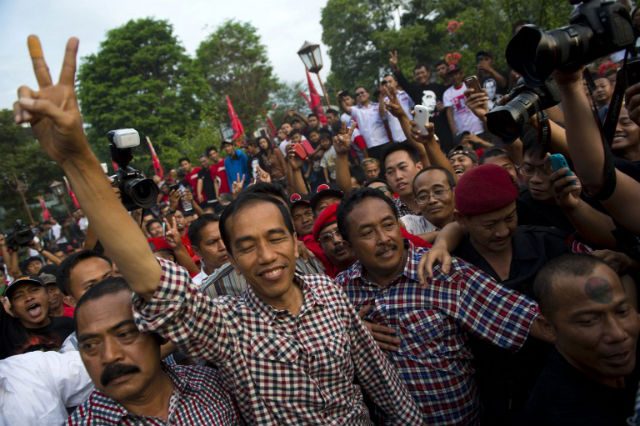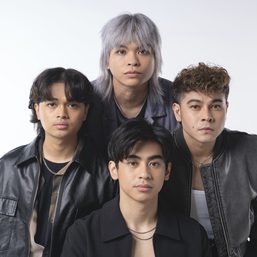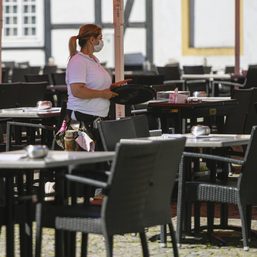SUMMARY
This is AI generated summarization, which may have errors. For context, always refer to the full article.

JAKARTA, Indonesia (UPDATED) – Jakarta Governor Joko “Jokowi” Widodo and former vice president Jusuf Kalla have won Indonesia’s third direct presidential election with a comfortable lead of more than 8.4 million votes.
The General Elections Commission (KPU) declared Jokowi and Kalla the winners at almost 9pm Tuesday (10 pm in Manila), after citing provincial tallies that show the pair – presidential ticket no. 2 – winning in 23 provinces and a total of 53.15%, or 70,997,833, of some 133 million votes cast.
Their rivals, former general Prabowo Subianto and former economics minister Hatta Rajasa, won in 10 other provinces and a total of 46.85% of the votes, or 62,576,444 to be exact.
However, Prabowo on Tuesday afternoon announced he was rejecting the electoral counting process that he said was undemocratic and characterized with massive fraud.
“Therefore we take a stand. We will use our Constitutional right to reject a flawed presidential election and we are pulling out of the ongoing process,” he announced.
How Indonesia voted
Jokowi and Kalla overwhelmingly won with more than two-thirds of the vote in 3 known strongholds – Central Java, South Sulawesi, and Bali.
In Central Java – home to the small city of Solo that first believed a furniture maker could become mayor – 66.65% of almost 19.5 million voters picked presidential ticket no. 2. The province alone gave Jokowi and Kalla a lead of almost 6.5 million votes.
The pair’s 71.42% win in Bali – a longtime stronghold of Jokowi’s political party PDI-P – was also expected, as well as the 71.43% win in South Sulawesi, Kalla’s native province.
West Kalimantan and Central Kalimantan, where the pair won about 60% of the votes, are also PDI-P strongholds, according to senior PDI-P politician Eva Kusuma Sundari.
Jokowi also received 53.08% of the votes from Jakarta, which he governed for just a year and a half before running for president, almost the same percentage of votes he received when he won the second round of the 2012 gubernatorial election.
On the other hand, support for Jokowi’s deputy governor, Basuku “Ahok” Purnama, appears to have contributed to a win in the latter’s native Bangka Belitung. “I guess the victory is related with the ‘Ahok’ effect,” PDI-P politician Andreas Hugo Pareira said.
Though Ahok is a member of Prabowo’s party Gerindra and endorsed the former general, he would become the first non-Muslim and Indonesian of Chinese descent to govern the capital of Jakarta in half a century. Henk Ngantung, a Catholic Chinese-Indonesian, served as Jakarta governor from 1964-65.
Jokowi also won in Indonesia’s restive province of Papua, where Andreas said Prabowo’s alleged roles in human rights abuses swung the vote in favor of Jokowi and Kalla.
Prabowo and Hatta, on the other hand, won convincingly in the country’s most populous province, West Java, with 59.78% of almost 23.7 million votes cast. The province is a stronghold of the Prosperous Justice Party (PKS), a key partner of Gerindra, explained Ari Dwipayana, a political analyst from Gajah Mada University. The current and previous governors of the province are both from PKS.
The Obor Rakyat tabloid that spread rumors about Jokowi, including claims he was not a Muslim and that he was of Chinese descent, was also widely circulated in West Java. – with reports from ATA and Agence-France Presse/Rappler.com
Add a comment
How does this make you feel?







There are no comments yet. Add your comment to start the conversation.